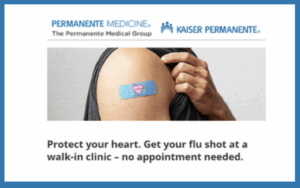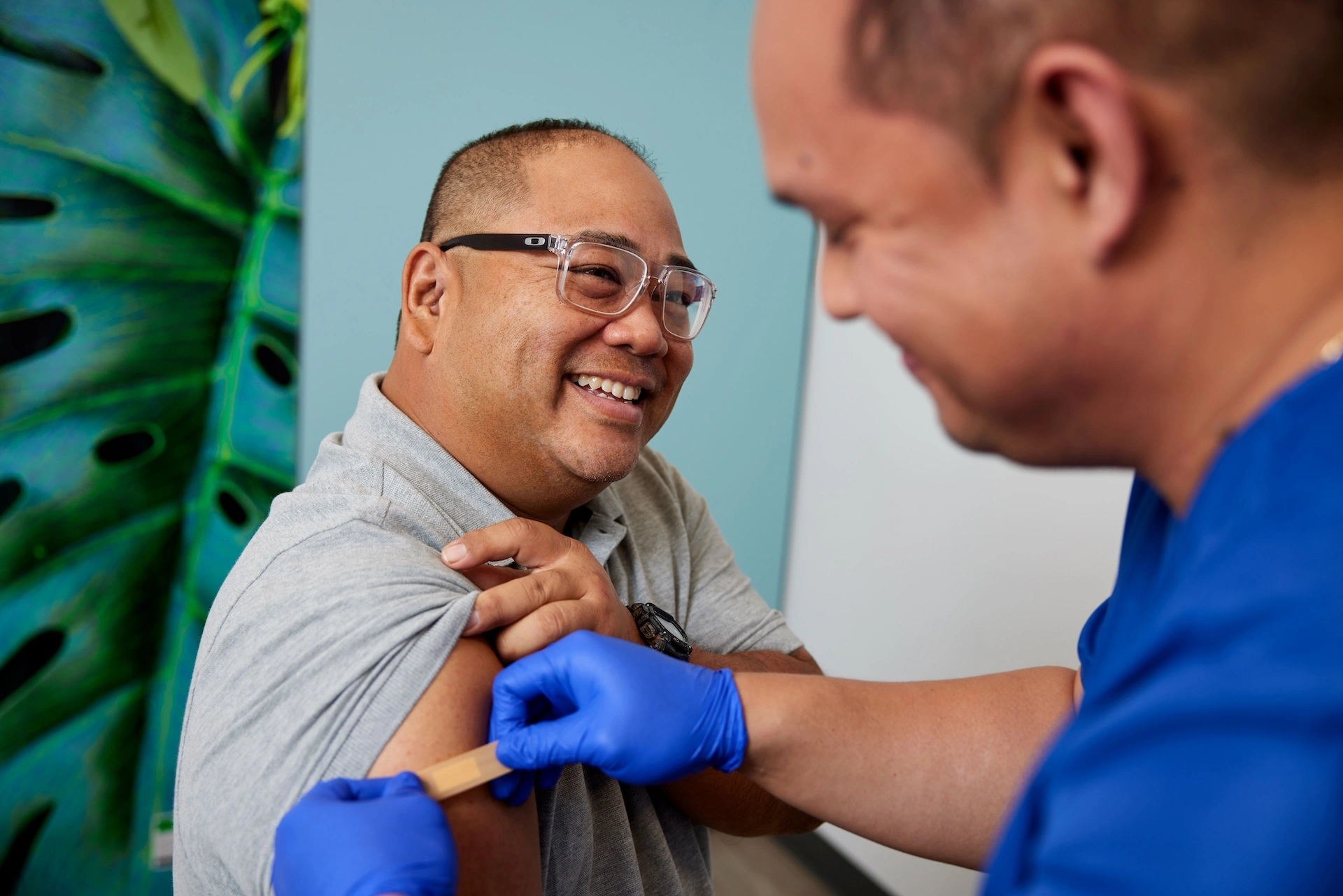Kaiser Permanente researchers tested impact of email nudges in 3.6 million members — the largest randomized trial to date
People who received an email reminder that the flu vaccine protects the heart and reduces the risk of hospitalization and death had similar vaccination rates as those who received a routine email reminder that explained the flu vaccine helps keep you safe.
The findings come from a new Kaiser Permanente study believed to be the largest ever individually randomized clinical trial conducted worldwide. The research was published in NEJM Evidence in coordination with a presentation of the research findings at the 2025 European Society of Cardiology Congress in Madrid, Spain.

“Getting more people vaccinated against the flu is an important public health goal,” said lead author Ankeet Bhatt, MD, MBA, ScM, a research scientist at the Kaiser Permanente Division of Research (DOR) and a cardiologist with The Permanente Medical Group. “It is especially important for people who have pre-existing heart conditions, because we know vaccination can reduce their risk of complications, hospitalization, or death.”
A remarkable undertaking
The KP-VACCINATE trial (Kaiser Permanente Vaccination Improvement with Nudge-based Cardiovascular Targeted Engagement) tested the effectiveness of cardiovascular-focused versus usual care messages to promote flu vaccination in the general population. The study included more than 3.6 million patients in 2 Kaiser Permanente regions — Northern California and the Mid-Atlantic States — who had not yet had a flu vaccine at the start of the last flu season.
The email reminders were sent between September and November 2024. Overall, by January 1, 2025, about 32% of the Kaiser Permanente members who had received the emails had been vaccinated. There was no clinically relevant difference in vaccination rates between the patients who received 1 or 2 cardiovascular-focused emails and those who received only the usual care reminder.

The researchers said that the study demonstrated that it is possible to efficiently test behavioral interventions integrated into existing health system workflows at large scale.
“Within 2 separate health care delivery systems, multiple teams worked together to leverage the existing clinical and operational infrastructure to carry out this important study,” said Alan Go, MD, a DOR research scientist and the associate director of the DOR Cardiovascular, Kidney, and Metabolic Health research section. “This success sets the stage for future studies of other behavioral health interventions.”
Building on prior research
A previous study coauthored by Bhatt conducted in Denmark found emailed letters that highlighted the cardiovascular benefits of the flu vaccine increased vaccination in Danish citizens who had previously had a heart attack. The new study sent email messages to a general group of Kaiser Permanente members.
“The study in Denmark found that people who received an email that focused on cardiovascular benefits were more likely to get vaccinated than those who received messages that touched on other benefits of vaccination,” said Bhatt. “We tested that message in the study we conducted at Kaiser Permanente to assess whether it was effective in other populations.”

Every person in the new study could receive 2 flu vaccination reminders. One group received 2 cardiovascular-focused emails; one group received 2 usual message emails; one group received the regular email followed by the cardiovascular-focused email; and one group received the cardiovascular-focused email followed by the regular email.
The cardiovascular-focused flu vaccine message highlighted that the vaccine protects the heart. It also noted that studies had found the flu vaccine reduces the risk of cardiovascular disease, heart attacks, and heart failure.
Currently, less than half of U.S. adults receive an annual flu vaccine. Yet, the flu causes more than 40,000 deaths in U.S. adults each year, and those with heart disease and other cardiovascular-related risk factors are most at risk for flu-related complications.
“Although our study found that the email messages we sent did not improve vaccination rates, we were able to show that conducting the type of study done in Denmark, which has a national health program, can be done in the U.S. across the scale of a large health system like Kaiser Permanente,” said Bhatt. “The next steps are to determine the specific messages that will resonate most with people in the U.S. and to use this platform to conduct additional large-scale randomized trials that will improve care.”
The study was funded by the Kaiser Permanente Garfield Memorial Fund.
Co-authors include Rishi V. Parikh, MPH, Thida C. Tan, MPH, Ben J. Marafino, PhD, and Andrew P. Ambrosy, MD, of the Division of Research; Natalia C. Berry, MD, MBA, Haihong Hu, MS, MPH, Mark Mummert, BA, Gerardo Hernandez-Diaz, MD, Rebecca Fitch, MD, and Benjamin Z. Galper, MD, MPH, of the Mid-Atlantic Permanente Research Institute; Zoe Ballance, MPH, Svasti Patel, MD, Alexis Jones, MSHCM, Ivy A. Ku, MD, and Kristine L. Lee, MD, of The Permanente Medical Group; Tor Biering-Sørensen, MD, MSc, MPH, PhD, and Niklas Dyrby Johansen, MD, PhD, of Copenhagen University Hospital; Brian L. Claggett, PhD, Scott D. Solomon, MD, and Muthiah Vaduganathan, MD, MPH, of Brigham and Women’s Hospital, Harvard Medical School for the KP-VACCINATE Investigators.
###
About the Kaiser Permanente Division of Research
The Kaiser Permanente Division of Research conducts, publishes, and disseminates epidemiologic and health services research to improve the health and medical care of Kaiser Permanente members and society at large. KPDOR seeks to understand the determinants of illness and well-being and to improve the quality and cost-effectiveness of health care. Currently, DOR’s 720-plus staff, including 73 research and staff scientists, are working on nearly 630 epidemiological and health services research projects. For more information, visit divisionofresearch.kp.org or follow us @KPDOR.





Comments (0)